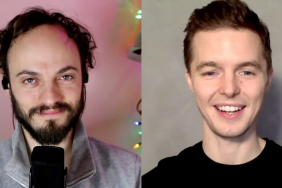
Lee Gambins Secretly Scary column continues to look at non-horror films that are secretly horror films!
The love every parent fears
– from ENDLESS LOVE’s tagline
In 1981, there were two young men named David who went through dramatic transformations on screen. David Kessler was a happy go-lucky Jewish student trekking it through Europe…






